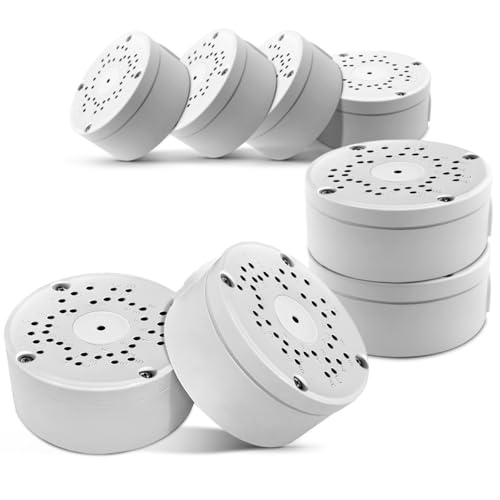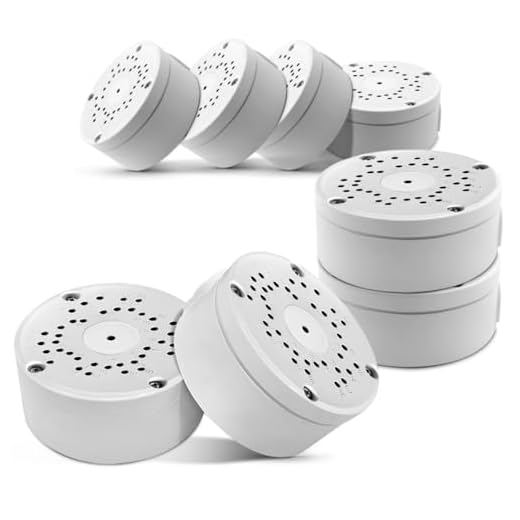


Outdoor security cameras are a crucial part of keeping your property safe and secure. However, they can be vulnerable to various threats, from weather damage to tampering by intruders. To ensure the effectiveness of your security system, it’s important to take proactive measures to protect your outdoor cameras.
One of the first steps you can take to safeguard your outdoor security cameras is to choose high-quality, weatherproof cameras that are designed to withstand the elements. Look for cameras with durable housing and IP ratings that indicate their resistance to dust and water.
Additionally, consider the placement of your cameras. Mount them out of reach to prevent tampering and vandalism. Regularly check and clean the lenses to maintain clear visibility. Installing a protective cover or housing can also provide an extra layer of security for your cameras.
How to Secure Outdoor Security Cameras
Outdoor security cameras are an important part of keeping your property safe, but they can also be vulnerable to tampering or hacking. To ensure the security of your outdoor security cameras, follow these steps:
1. Choose a Secure Location
Place your outdoor security cameras in a secure location where they are not easily accessible to intruders. Mount them high enough to prevent tampering or vandalism.
2. Use Tamper-Resistant Hardware
Install your outdoor security cameras using tamper-resistant hardware to prevent them from being removed or disabled. Consider using security camera enclosures for added protection.
| 3. Secure Your Wi-Fi Network |
| Make sure your Wi-Fi network is secure by using a strong password and enabling encryption. This will help prevent unauthorized access to your security camera feed. |
Choose a Strategic Location
When installing outdoor security cameras, the location plays a crucial role in their effectiveness and protection. Choose a strategic location that provides optimal coverage of your property while minimizing the risk of tampering or vandalism.
Consider these tips:
– Mount the cameras high enough to prevent easy access but low enough to capture clear footage.
– Avoid placing cameras in areas where they can be easily reached or covered, such as near trees or bushes.
– Ensure the cameras have a clear line of sight without obstructions that could block their view.
– Position the cameras in a way that covers entry points and vulnerable areas of your property.
By carefully selecting the location for your outdoor security cameras, you can enhance their protection and surveillance capabilities.
Use Tamper-Proof Mounts
Another effective way to protect your outdoor security cameras is by using tamper-proof mounts. These mounts are designed to prevent unauthorized individuals from tampering with or removing the cameras. Tamper-proof mounts typically come with special screws or locking mechanisms that make it difficult for intruders to access the camera.
By installing tamper-proof mounts, you can add an extra layer of security to your outdoor surveillance system and deter potential vandals or thieves. Make sure to choose mounts that are compatible with your camera model and securely attach them to a stable surface for optimal protection.
Install Motion-Activated Lights
One effective way to enhance the security of your outdoor security cameras is to install motion-activated lights. These lights will illuminate the area around your cameras whenever motion is detected, alerting you to any potential threats and deterring intruders.
By pairing motion-activated lights with your security cameras, you can capture clearer footage in low-light conditions and increase the overall effectiveness of your surveillance system. Additionally, the sudden illumination of the area can startle potential intruders, making them more likely to retreat.
Hide Wires and Cables
One important aspect of protecting your outdoor security cameras is to hide the wires and cables. Exposed wires can be easily tampered with or cut, rendering your cameras useless. Here are some tips on how to hide wires and cables:
- Use cable clips or cable covers to secure and conceal wires along walls or ceilings.
- Run wires through conduits or PVC pipes to protect them from the elements and potential vandalism.
- Bury cables underground or run them through existing structures to prevent visibility and tampering.
- Consider using wireless security cameras to eliminate the need for visible wires altogether.
Set Up Remote Monitoring
To enhance the security of your outdoor security cameras, consider setting up remote monitoring. This feature allows you to access live feeds and recordings from your cameras anytime, anywhere using a smartphone, tablet, or computer.
To set up remote monitoring, follow these steps:
- Choose a reliable and secure monitoring platform or app that is compatible with your security camera system.
- Install the monitoring app on your mobile device or access the platform through a web browser on your computer.
- Connect your security cameras to the monitoring platform by following the manufacturer’s instructions.
- Create a secure login and password for remote access to ensure only authorized users can view the camera feeds.
- Test the remote monitoring functionality to ensure it is working properly and adjust settings as needed.
By setting up remote monitoring, you can keep an eye on your property and enhance the overall security of your outdoor security camera system.
Regularly Update Firmware
One important step in protecting your outdoor security cameras is to regularly update their firmware. Manufacturers often release firmware updates to address security vulnerabilities and improve device performance. By keeping your cameras’ firmware up to date, you can ensure that they have the latest security patches installed, reducing the risk of unauthorized access or hacking.
Enable Two-Factor Authentication
One of the most effective ways to protect your outdoor security cameras is to enable two-factor authentication (2FA). This adds an extra layer of security by requiring a second form of verification, such as a code sent to your phone, in addition to your password. This way, even if someone manages to obtain your password, they won’t be able to access your camera system without the second factor.
Secure Your Wi-Fi Network
One of the most important steps you can take to protect your outdoor security cameras is to secure your Wi-Fi network. Here are some tips to help you do just that:
- Change the default SSID and password of your Wi-Fi network. Using the default settings makes it easier for hackers to access your network.
- Enable WPA2 or WPA3 encryption on your Wi-Fi network. This will help secure the data transmitted between your cameras and your network.
- Turn off SSID broadcasting to make your network less visible to potential intruders.
- Set up a guest network for visitors to use, separate from your main network where your cameras are connected.
- Regularly update your router’s firmware to ensure the latest security patches are in place.
Consider Using a Security Camera Enclosure
One effective way to protect your outdoor security cameras is to use a security camera enclosure. These enclosures are specially designed to shield your cameras from harsh weather conditions, vandalism, and tampering.
Security camera enclosures come in various shapes and sizes to accommodate different camera models. They are typically made of durable materials such as metal or polycarbonate to provide maximum protection.
Benefits of Using a Security Camera Enclosure:
1. Weather Resistance: Enclosures help protect your cameras from rain, snow, wind, and extreme temperatures, ensuring they continue to function optimally in any weather conditions.
2. Enhanced Security: By adding an extra layer of protection, security camera enclosures can deter potential intruders and vandals, keeping your cameras safe and secure.







